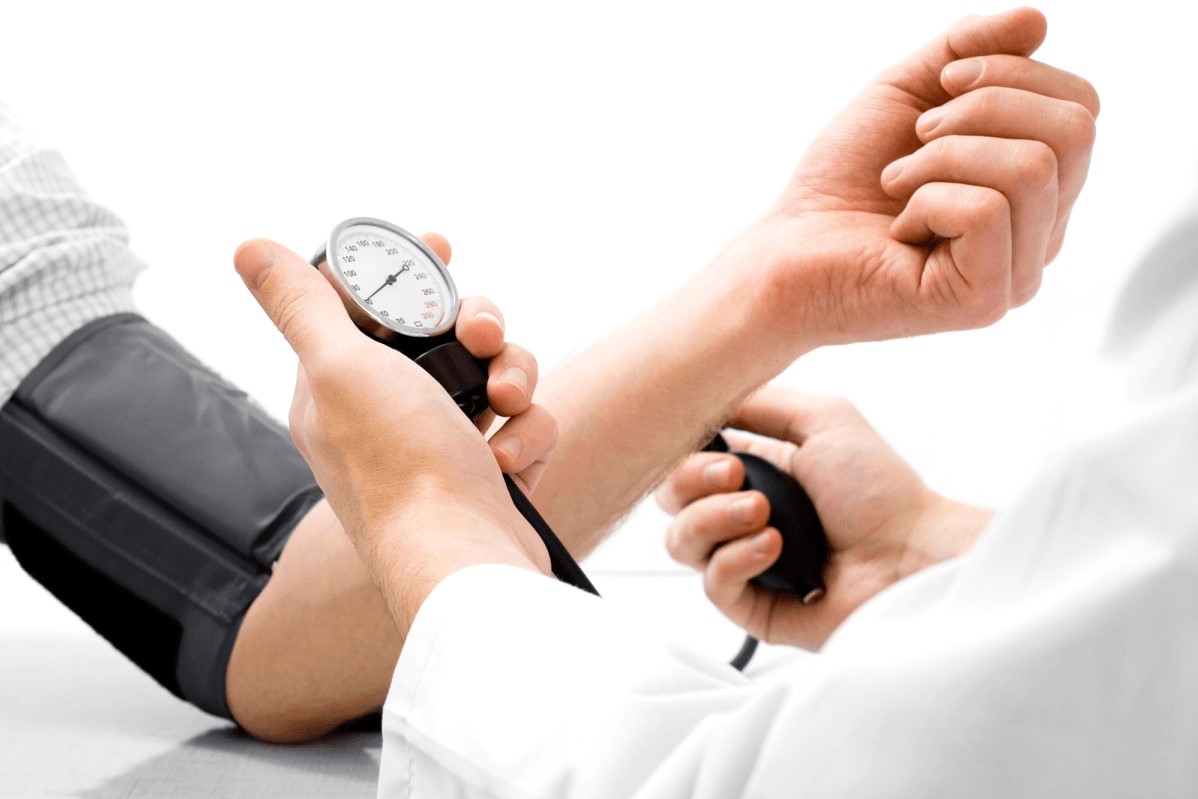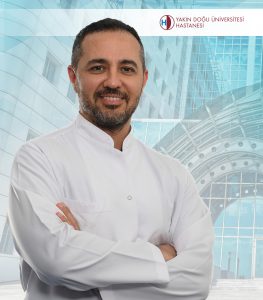
Near East University Hospital Cardiology Department Head Prof. Dr. Hamza Duygu explained what needs to be known about the disease on “World Hypertension Day”.
Millions of people of all ages around the world struggle with high blood pressure (hypertension), which can lead to serious health problems. Every year, May 17 is commemorated as “World Hypertension Day” to raise awareness about hypertension, which is also described as the “silent killer”.
Near East University Hospital Cardiology Department Head Prof. Dr. Hamza Duygu explained what needs to be known about hypertension, pointing out that raising public awareness about hypertension is vital in terms of taking protective measures, early diagnosis and implementation of effective treatment methods.
Hypertension is defined as abnormally high pressure exerted by the blood within the arteries on the vessel wall. Prof. Dr. Hamza Duygu draws attention to the high risk of hypertension in people whose first-degree relatives have high blood pressure, who are overweight, who have a physically inactive lifestyle, who consume excessive salt, who consume excessive alcohol, who have a stressful lifestyle, and who have diabetes or kidney disease.
Hypertension increases the risk of stroke by 7 times and the risk of heart failure by 6 times!
Stating that high blood pressure is the leading cause of preventable death in the world, Prof. Dr. Hamza Duygu said, “High blood pressure can lead to stroke, vision loss, heart attack, heart failure, kidney failure and arteriosclerosis in all other arteries. Studies carried out by the Turkish Ministry of Health have determined that the cause of 1 in every 4 deaths in Turkey is high blood pressure.”
According to studies, high blood pressureincreases the risk of stroke by 7 times, the risk of heart failure by 6 times and the risk of atherosclerosis in the heart vessels by 4 times. Prof. Dr. Hamza Duygu said, “Even lowering blood pressure by 1-2 mmHg in patients with high blood pressure significantly reduces deaths from cardiovascular diseases.”
The incidence of high blood pressure is higher in women!
Prof. Dr. Duygu stated that 26 percent of the adult population in the world lives with high blood pressure and it is predicted that this rate may increase to 29 percent in 2025. Prof. Dr. Hamza Duygu pointed out that according to studies conducted in Turkey, the prevalence of hypertension in the society is around 32 percent. Prof. Dr. Hamza Duygu said, “High blood pressure rates, which are 36 percent in women and 27.5 percent in men, increase with age.”
Prof. Dr. Duygu stated that the prevalence of high blood pressure in the 35-64 age group is 35 percent in men and 50 percent in women, and in the group aged 65 and over, these rates are 67.2 percent for men and 81.7 percent for women.

Prof. Dr. Duygu said that there is no cause in approximately 90-95 percent of patients with high blood pressure and stated that it may develop in 5 to 10 percent of patients due to certain health problems such as kidney disorders, hormone diseases, congenital aortic stenosis, medications and sleep apnea.
Providing information about the symptoms of high blood pressure, Prof. Dr. Hamza Duygu said, “High blood pressure often progresses without symptoms. That’s why it is called the ‘silent killer’. However, we can summarize it as headache felt in the nape and back of the head, especially in the mornings, tinnitus, dizziness, feeling light-headed, nosebleeds and loss of concentration.” Prof. Dr. Duygu said that salt consumption is very high in Turkey and emphasized that the recommended daily amount of salt is 6 grams. “We treat high blood pressure with lifestyle changes and medications,” said Prof. Dr. Hamza Duygu, and added, “You should stop using products such as alcohol and tobacco, maintain your ideal weight, exercise regularly and reduce salt consumption.”
Prof. Dr. Duygu stated that in addition to these precautions, drug treatment can be applied under the supervision of a doctor if necessary. Prof. Dr. Hamza Duygu stated that there are non-drug treatment options under the supervision of a doctor in resistant cases and said, “Among these options is the ‘renal sympathetic denervation’ procedure, which reduces blood pressure by destroying the nerves in the kidney vessels. This procedure generally gives successful results and can provide hope to patients who have difficulty controlling blood pressure.”